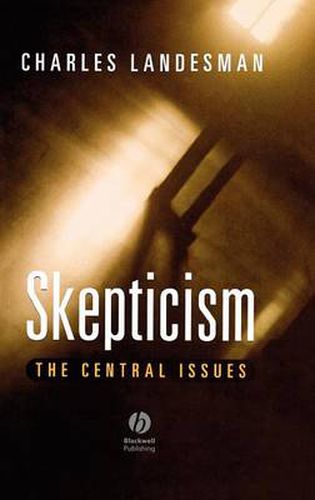Readings Newsletter
Become a Readings Member to make your shopping experience even easier.
Sign in or sign up for free!
You’re not far away from qualifying for FREE standard shipping within Australia
You’ve qualified for FREE standard shipping within Australia
The cart is loading…






This book presents and analyzes the most important arguments in the history of Western philosophy’s skeptical tradition. It demonstrates that, although powerful, these arguments are quite limited and fail to prove their core assertion that knowledge is beyond our reach. It dissects the problems of realism and the philosophical doubts about the accuracy of the senses. It explores the ancient argument against a criterion of knowledge, Descartes’ skeptical arguments, and skeptical arguments applied to inductive inference and self-knowledge. It uses Moore’s proof of an external world and the reliabilist conception of knowledge to illustrate that the traditional skeptical arguments fail to meet their mark. The book concludes with a chapter on the problem of knowledge, which leaves the reader with an understanding of the strength of skeptical arguments as well as their limits.
$9.00 standard shipping within Australia
FREE standard shipping within Australia for orders over $100.00
Express & International shipping calculated at checkout
This book presents and analyzes the most important arguments in the history of Western philosophy’s skeptical tradition. It demonstrates that, although powerful, these arguments are quite limited and fail to prove their core assertion that knowledge is beyond our reach. It dissects the problems of realism and the philosophical doubts about the accuracy of the senses. It explores the ancient argument against a criterion of knowledge, Descartes’ skeptical arguments, and skeptical arguments applied to inductive inference and self-knowledge. It uses Moore’s proof of an external world and the reliabilist conception of knowledge to illustrate that the traditional skeptical arguments fail to meet their mark. The book concludes with a chapter on the problem of knowledge, which leaves the reader with an understanding of the strength of skeptical arguments as well as their limits.